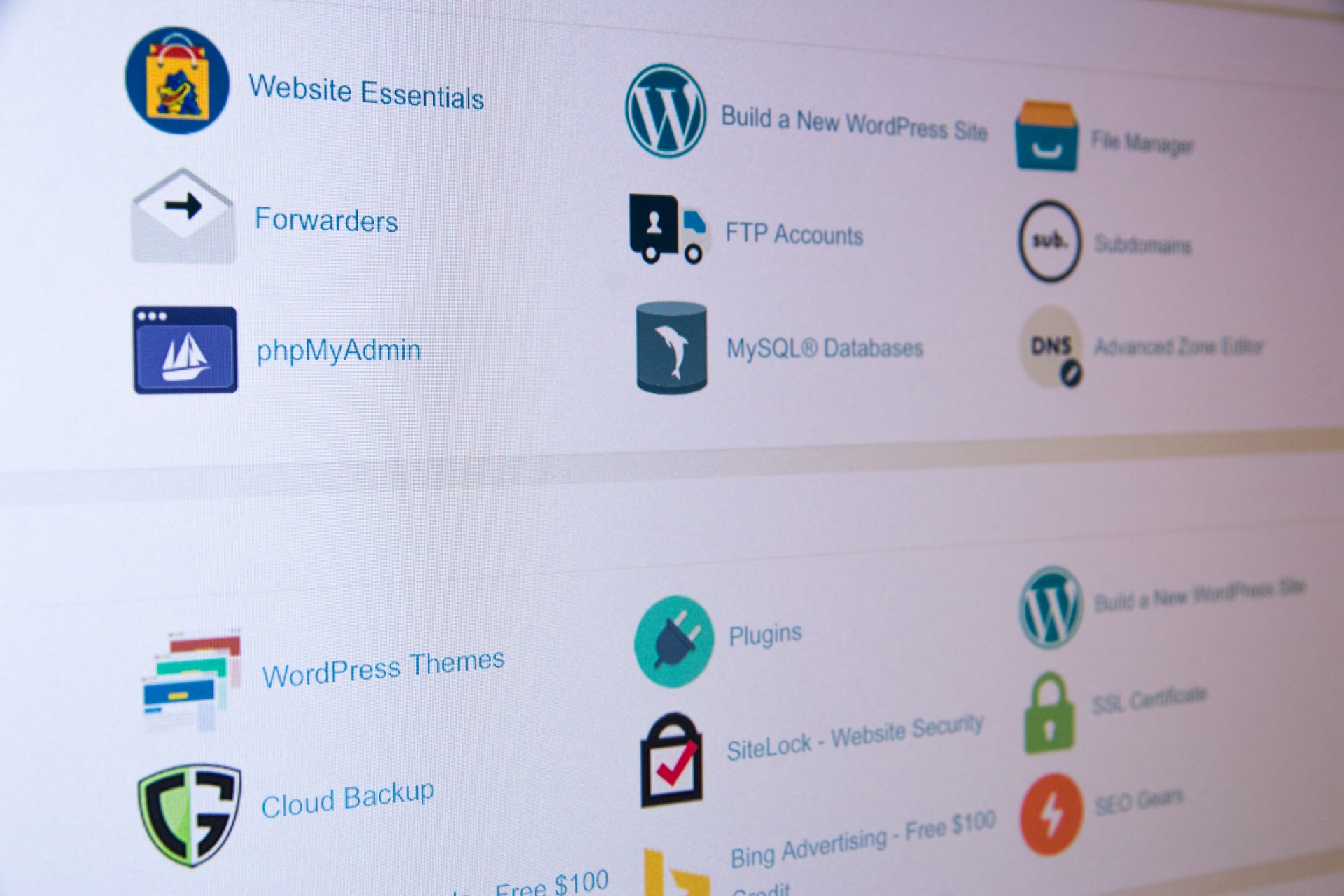Many small businesses don’t realise how many moving parts are involved in maintaining a solid online presence. One may think that all you need is a working website, but you also need a great-looking site design and other forms of website maintenance to keep your site looking and functioning well. Web hosting is an integral part of this puzzle, as it ensures that your website is accessible to internet users.
There are a few different types of web hosting services, but they all essentially provide the same service: they give you a space on a server where you can store your website’s files, and then they provide internet users with a way to access those files. When someone types in your website’s URL, their computer will connect to the server hosting your site and retrieve the files, which will then be displayed in their browser.
To help you understand the importance of this for your business and website, here is an overview of what web hosting is, how it works, and what this does for your business site.
What is Web Hosting?

Web hosting is a service that allows you to upload your website onto a server, making it available to visitors around the world. The process involves placing files on a server where they are accessed by visitors who access them via a website or other online service.
Hosting services typically provide storage space and backend features such as database management, site analytics tools, and security protection from malicious software.
The Benefits of Web Hosting

Web hosting provides many benefits, including faster websites with lower costs for bandwidth use. From a climate standpoint, this is also beneficial because it reduces the number of servers needed to run a website or online service, making it a more environmentally-friendly option. It also shares resources among all customers on the web host’s network. Here are some of the additional benefits that web hosting can do for your website:
Improves Your Site’s Performance
Web hosting allows your site’s files and data to be stored on a server. This reduces the strain on your computer and network resources when too many people visit your site simultaneously. Not only that, but this provides faster performance for visitors to your website or web application because less data has to be transferred from their devices to yours.
Allows You to Focus on Your Business
By outsourcing your website’s hosting, you can free up time and resources that would be better spent on other areas of your business. This is especially beneficial for small companies and startups that may not have the in-house expertise or staff to handle all aspects of website management.
Enables Site Access Anywhere
As long as you have access to an internet connection, your website will be accessible from anywhere in the world. This is convenient for you and your visitors, as they can access your site anytime, no matter where they are.
A website hosted on a web server can be accessed by anyone who has internet access and knows the URL. So if you want to update your site, you can edit the files on your host’s server, and it will appear to live almost instantly. You also benefit from having many backup copies of your site stored on the server. This makes it easy for you to manage your website, regardless of the time and place.
Care for Your Site with Managed Services
Web hosting providers offer you a suite of backend features to help you maintain and optimise your website or web application. These include automated software updates, backups to protect against data loss, 24/7 monitoring for potential security threats, DDOS protection during traffic spikes, and various other services. With the help of your web host’s support staff, you can manage your site’s email addresses and sub-domains.
How to Find a Web Hosting Provider
Looking for a good web hosting provider can be overwhelming, especially if this is your first time. In addition, the features and functionalities offered by these services vary from company to company, so it helps to pay attention to what each offers before deciding.
Here are several factors you should take into consideration while browsing the web host market:
Pricing
If you are starting out with your business, choosing a provider that does not charge much will be the best option because, at this point, you are looking for an affordable solution. However, remember that the cheapest option may not always be the best, especially for something as crucial as your web hosting provider.
There are several features that even the most basic website should take advantage of, such as website backups and 24/7 customer support, which will cost you money. Because of this, it’s essential to think carefully about what you need for your website and find the best provider to meet those needs instead of relying only on the cost of services as your determining factor in your decision-making.
Storage space
Storage space refers to how much space you have to store all of your website’s files and database data on its servers. This can be important depending on how much traffic your site gets and what type of content it has, such as plenty of images or videos. If you expect a lot of traffic or your site has a lot of content, you should look for providers offering more storage space.
The amount of storage space you need will also affect the price you pay for your hosting services. However, some companies use deceptive practices to lure customers in with low prices, only to charge them more for added features or extra storage later. So make sure to read the fine print before signing up for anything.
Bandwidth
Bandwidth, measured in gigabytes (GB) per month, limits the maximum amount of data that can be transferred from your web host’s servers to your site’s visitors. It is essential because it affects how fast your website loads and how many people can visit it simultaneously without crashing.
This is especially vital for sites with many images and videos because going over the allotted bandwidth will slow down navigation for visitors. If you expect a lot of traffic, you should look for providers offering more bandwidth.
Like storage space, the bandwidth you need will also affect your hosting service costs. However, some companies use deceptive practices to lure customers in with low prices, only to charge them more for added features or extra bandwidth later. So make sure to read the fine print before signing up for anything.
Customer support
Websites hosted on a server must be monitored 24/7, so having access to your web host’s customer support team is essential. The more reliable the service, the better because you will need help if something goes wrong with your site. Customer support is vital because it gives you peace of mind knowing that there is someone you can contact if something goes wrong with your website. A good provider will offer 24/7 customer support so that you can always get help when you need it.
Technical specifications
How many servers do the company owners run their network infrastructure?
Ask the customer service department what they are running (operating system, web server, database server, and other software), how much power the servers have, and how many websites each one hosts on average. A good rule of thumb is that if a company doesn’t want to give you this information or tries to avoid your questions, it’s probably not a good idea to do business with them.
You should also find out what security measures they have to protect your website from hackers. Any reputable web hosting provider will have some form of security measures in place, such as firewalls and virus protection.
Server response time
The average load time refers to how quickly a request for a page or file is sent from a visitor’s computer and received by the hosting server. The faster the load time, the better because it keeps visitors engaged with your site instead of waiting for pages to download.
A good web hosting provider will have an average load time of fewer than two seconds. Anything over that is too slow and will likely result in lost visitors and sales.
Uptime/uptime guarantee
Uptime refers to the total amount of time your website is accessible and operational on a given day. Uptime is crucial because it directly affects your website’s availability to visitors.
The best web hosting providers will have an uptime of 99.9% or higher. Anything below that is unacceptable because it means your site is down more than it is up, which will frustrate visitors and cause them to go elsewhere.
A good provider will also offer an uptime guarantee, which means that they will refund your money if their servers go down and your site is unavailable for a certain period of time.
While it might seem like a lot of work, it is vital to research the different types of hosting available to find the best one for your needs. Doing this will ensure that your website is always up and running smoothly, keeping visitors happy and coming back for more.
A lack of research is one of the main reasons why people end up paying for features they don’t need or finding out that their site is down more often than it’s up. So take your time, ask lots of questions, and you’ll be sure to find the best web hosting provider for your needs.











